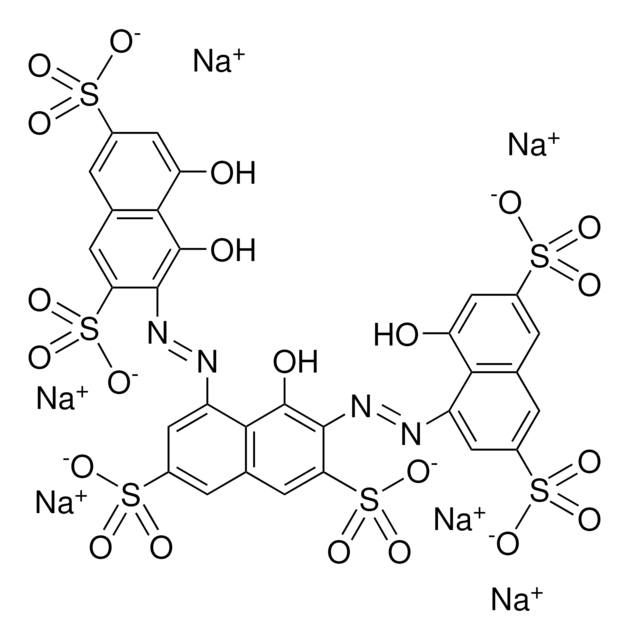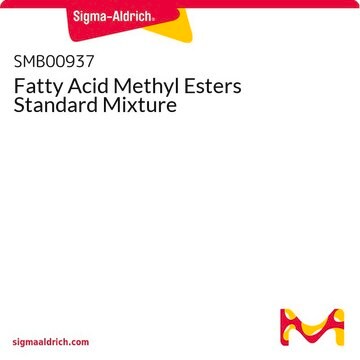추천 제품
생물학적 소스
mouse
Quality Level
항체 형태
purified immunoglobulin
항체 생산 유형
primary antibodies
클론
JRK1535, monoclonal
종 반응성
human
반응하면 안 됨
mouse
기술
flow cytometry: suitable
neutralization: suitable
동형
IgG1κ
NCBI 수납 번호
UniProt 수납 번호
배송 상태
dry ice
타겟 번역 후 변형
unmodified
유전자 정보
human ... PROCR(10544)
관련 카테고리
일반 설명
Endothelial protein C receptor (UniProt Q9UNN8; also known as Activated protein C receptor, APC receptor, CD201, Endothelial cell protein C receptor) is encoded by the PROCR (also known as EPCR) gene (Gene ID 10544) in human. The coagulation cascade is an evolutionary conserved pathway in vertebrates that maintains vascular integrity. The procoagulant activity of the tssue factor (TF) pathway is counterbalanced by the protein C (PC) anticoagulant pathway to avoid intravascular thrombosis. EPCR is a CD1d–like immune receptor that binds the γ-carboxyl glutamic acid-rich (Gla) domain of PC and markedly improves PC activation in response to thrombin binding to endothelial cell-expressed thrombomodulin. EPCR also serves as the co-receptor for activated PC (aPC) in vascular protective signaling mediated by activation of PAR1. In addition, EPCR is found on hematopoietic, neuronal and epithelial progenitor populations, as well as among highly aggressive basal-like breast cancer subtypes. Endothelial overexpression of EPCR attenuates metastasis, presumably by dampening thrombin generation that supports metastatic tumor cell survival. EPCR-dependent PAR1 activation by aPC also stimulates breast cancer cell migration and prevents apoptosis of lung cancer cells. EPCR-selected populations of breast cancer cells grow as non-adherent spheroids and have high tumorigenicity when injected at low cell numbers. EPCR is initially produced with a signal peptide (a.a. 1-17), the removal of which yields the mature protein with a large extracellular region (a.a. 18-210), followed by a transmembrane domain (a.a. 211-231) and a short cytoplasmic tail (a.a. 232-238).
특이성
Clone JRK1535 blocked activated protein C (APC) from binding cell surface EPCR by targeting a conformational epitope at the extracellular domain (Liaw, P.C., et al. (2001). J. Biol. Chem. 276(11):8364-8370).
면역원
Epitope: Extracellular domain.
Recombinant human EPCR extracellular domain.
애플리케이션
Anti-EPCR Antibody, clone JRK1535 is an antibody against EPCR for use in Flow Cytometry, Neutralizing.
Flow Cytometry Analysis: 0.1 µg of this antibody from a representative lot detected EPCR in one million HeLa cells.
Flow Cytometry Analysis: A representative lot, when conjugated with fluorescein, detected Doxorubicin (Cat. No. 324380) treatment-induced downregulation of EPCR expression on the surface of HUVECs. Glutathione pretreatment prevented Doxorubicin-induced EPCR downregulation (Woodley-Cook, J., et al. (2006). Mol. Cancer Ther. 5(12):3303-3311).
Flow Cytometry Analysis: A representative lot blocked fluorescein-labeled APC from binding exogenously expressed human EPCR on the surface of HEK293 transfectants. When labeled with fluorescein, clone JRK1535 stained HEK293 transfectants expressing human EPCR, but not transfectants expressing murine EPCR (Liaw, P.C., et al. (2001). J. Biol. Chem. 276(11):8364-8370).
Neutralizing Analysis: A representative lot inhibited APC generation from acrolein-treated HUVECs exposed to defibrinated, recalcified plasma (Swystun, L.L., et al. (2011). J Thromb Haemost. 9(4):767-775).
Neutralizing Analysis: A representative lot selectively affected the survival of sorted EPCR-positive, but not EPCR-negative, MDA-MB-231 mammary fat pad (mfp) cells in cultures. Pretreatment of EPCR-positive cells with clone JRK1535 prior to xenografting also suppressed the tumor-initiating capacity of the EPCR-positive cells in mice vivo (Schaffner, F., et al. (2013). PLoS One. 8(4):e61071).
Flow Cytometry Analysis: A representative lot, when conjugated with fluorescein, detected Doxorubicin (Cat. No. 324380) treatment-induced downregulation of EPCR expression on the surface of HUVECs. Glutathione pretreatment prevented Doxorubicin-induced EPCR downregulation (Woodley-Cook, J., et al. (2006). Mol. Cancer Ther. 5(12):3303-3311).
Flow Cytometry Analysis: A representative lot blocked fluorescein-labeled APC from binding exogenously expressed human EPCR on the surface of HEK293 transfectants. When labeled with fluorescein, clone JRK1535 stained HEK293 transfectants expressing human EPCR, but not transfectants expressing murine EPCR (Liaw, P.C., et al. (2001). J. Biol. Chem. 276(11):8364-8370).
Neutralizing Analysis: A representative lot inhibited APC generation from acrolein-treated HUVECs exposed to defibrinated, recalcified plasma (Swystun, L.L., et al. (2011). J Thromb Haemost. 9(4):767-775).
Neutralizing Analysis: A representative lot selectively affected the survival of sorted EPCR-positive, but not EPCR-negative, MDA-MB-231 mammary fat pad (mfp) cells in cultures. Pretreatment of EPCR-positive cells with clone JRK1535 prior to xenografting also suppressed the tumor-initiating capacity of the EPCR-positive cells in mice vivo (Schaffner, F., et al. (2013). PLoS One. 8(4):e61071).
Research Category
Signaling
Signaling
Research Sub Category
Immunological Signaling
Immunological Signaling
품질
Evaluated by Flow Cytometry in A549 cells.
Flow Cytometry Analysis: 0.1 µg of this antibody detected EPCR in one million A549 cells.
Flow Cytometry Analysis: 0.1 µg of this antibody detected EPCR in one million A549 cells.
표적 설명
24.80 kDa calculated. Greater than 40 kDa observed due to glycosylation (Woodley-Cook, J., et al. (2006). Mol. Cancer Ther. 5(12):3303-3311).
물리적 형태
Format: Purified
Protein G Purified
Purified mouse monoclonal IgG1κ antibody in PBS without preservatives.
저장 및 안정성
Stable for 1 year at -20°C from date of receipt.
Handling Recommendations: Upon receipt and prior to removing the cap, centrifuge the vial and gently mix the solution. Aliquot into microcentrifuge tubes and store at -20°C. Avoid repeated freeze/thaw cycles, which may damage IgG and affect product performance.
Handling Recommendations: Upon receipt and prior to removing the cap, centrifuge the vial and gently mix the solution. Aliquot into microcentrifuge tubes and store at -20°C. Avoid repeated freeze/thaw cycles, which may damage IgG and affect product performance.
기타 정보
Concentration: Please refer to lot specific datasheet.
면책조항
Unless otherwise stated in our catalog or other company documentation accompanying the product(s), our products are intended for research use only and are not to be used for any other purpose, which includes but is not limited to, unauthorized commercial uses, in vitro diagnostic uses, ex vivo or in vivo therapeutic uses or any type of consumption or application to humans or animals.
Not finding the right product?
Try our 제품 선택기 도구.
Storage Class Code
12 - Non Combustible Liquids
WGK
WGK 2
Flash Point (°F)
Not applicable
Flash Point (°C)
Not applicable
시험 성적서(COA)
제품의 로트/배치 번호를 입력하여 시험 성적서(COA)을 검색하십시오. 로트 및 배치 번호는 제품 라벨에 있는 ‘로트’ 또는 ‘배치’라는 용어 뒤에서 찾을 수 있습니다.
Xiaofeng Cai et al.
Thrombosis and haemostasis, 121(11), 1448-1463 (2021-03-12)
Activated protein C (APC) is an anticoagulant plasma serine protease which exhibits potent cytoprotective and anti-inflammatory activities. Here, we studied protective effects of APC on the proinflammatory function of polyinosinic:polycytidylic acid [poly(I:C)], a synthetic analog of viral double-stranded RNA, in
자사의 과학자팀은 생명 과학, 재료 과학, 화학 합성, 크로마토그래피, 분석 및 기타 많은 영역을 포함한 모든 과학 분야에 경험이 있습니다..
고객지원팀으로 연락바랍니다.








